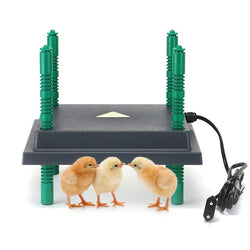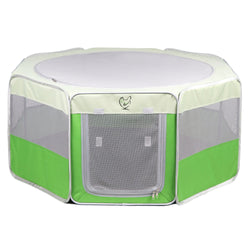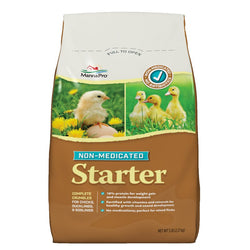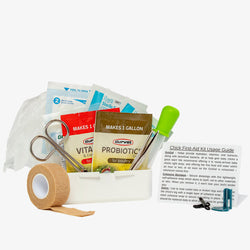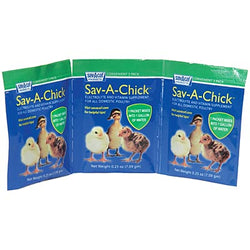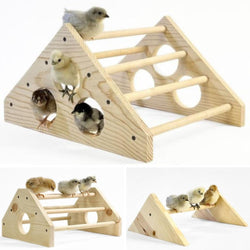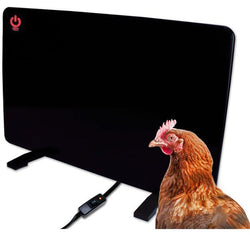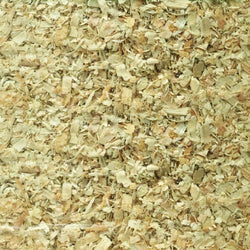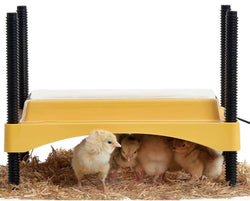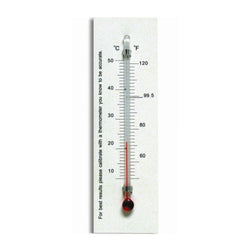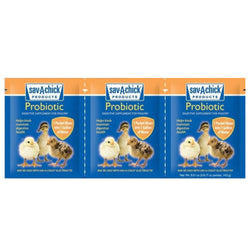All about Coccidiosis disease
Back to blog
Coccidiosis is very common in chicks, especially ones that may be stressed from shipping or from being introduced to a new location. You can help by keeping your chicks as stress-free as possible, and by keeping their brooder dry. Some people choose to use medicated feed to combat susceptibility to this disease while the chicks develop a resistance, while others use regular feed and have no trouble with cocci. We discuss medicated feed and more, below:
Coccidiosis Also called
Cocci
Prevalence
Very common
Signs
General signs -
Loss of appetite, weight loss or stunted growth, ruffled feathers, lethargy, and (for mature hens) a dcocrop in laying
Cardinal or diagnostic signs -
Mucousy, frothy, or bloody droppings; hunched stance with drooping wings, fecal smear performed by a vet will show coccidiosis infection. This stock photo shows the typical hunched stance with drooping wings of a young chicken with coccidiosis:
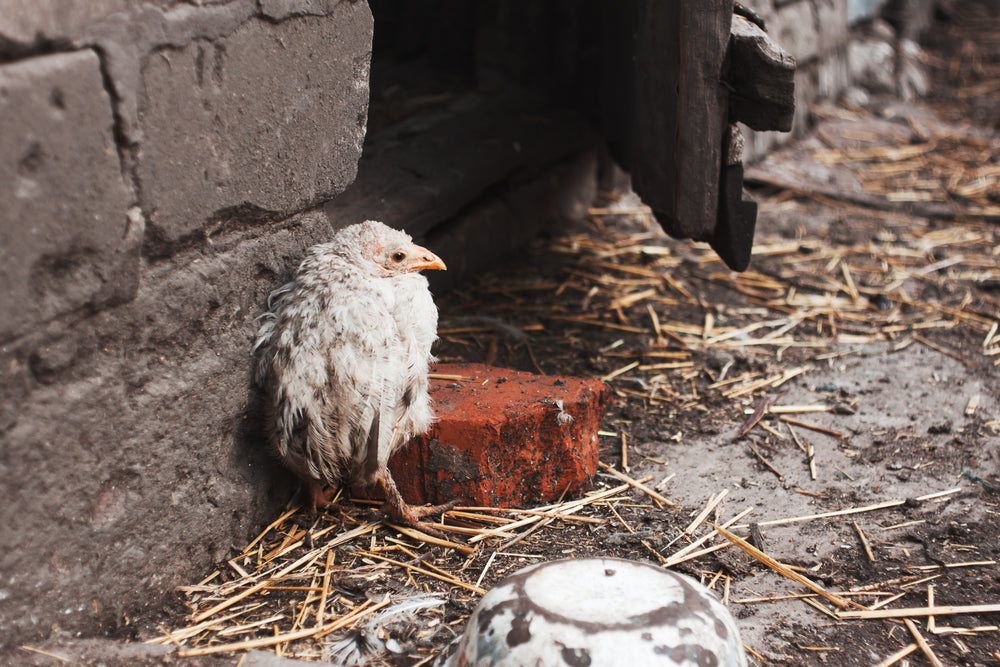
Cause/s
Protozoa (Eimeria spp). Different species may infect different parts of the gut; some affect the ceca while others affect the intestine.
Communicability
Very, spread by contact with feces of infected birds, including wild birds. You can generally expect that coccidia are already in your environment in low concentrations. Generally, chickens simply build up a resistance, but young chicks may be overwhelmed before their immunity establishes--especially if stressed from shipping. Older birds are also occasionally susceptible, especially if ill or weakened from another condition, or if a new type of coccidiosis is brought in by wild birds, tracked in from the feed store, or brought in with new additions to the flock, for example.
Communicability to humans
Although most animals can suffer from cocci, they are host-specific, meaning that coccidiosis infecting your chickens will not be communicable to humans, dogs, cats, etc.
Incubation period
4 to 8 days
Latent
Yes. Chickens may be carriers of various types of coccidiosis even when appearing perfectly healthy, because they have built up a resistance to that particular species.
Endemic
Yes. Coccidiosis can be found in most environments.
Home treatment and/or prevention
Keep your brooder and coop dry, as coccidiosis proliferate in warm, wet, or moist places. For baby chicks, some people prefer to use feed that has been medicated with an coccidiostat. However, chicks on medicated feed may still be infected; medicated feed simply reduces the risk of a serious infection, and only for certain species (not all medications are effective against all coccidia). In addition, when medicated feed is withdrawn, a latent infection may become acute. Chicks raised by broody hens on litter generally fare better, since they are gradually exposed and develop immunity quickly. Chicks raised on wire are more susceptible once they have access to pasture, since they will not likely have built up any immunity. Similarly, chicks raised in sanitary conditions on clean litter may struggle once they are exposed in the coop or in the yard, if they have not built up any resistance. When you change your flock's environment, keep your eyes open for signs of coccidiosis, as they may be exposed to a type they have not built up resistance for.
Veterinary care
Most farm/feed stores have coccidiosis medications on hand. However, a veterinarian's advice is usually recommended, especially when the birds infected are already laying. Medications your hens are consuming can be transmitted through their eggs, so you will need to know for how long you must discard eggs before they are safe for you to eat. Your veterinarian may also be aware if any new or more effective medications have been developed, and will know when to prescribe a coccidiostat, and when a cocciocide would be better.
Recovery
The illness can be quickly fatal, especially in young chicks. However, they can also recover quickly if the illness is caught early, and if the birds are treated according to veterinary advice.
Other conditions, illnesses and/or diseases with similar signs:
Salmonellosis, blackhead, worms, and other illnesses affecting the intestinal tract
Coccidiosis Also called
Cocci
Prevalence
Very common
Signs
General signs -
Loss of appetite, weight loss or stunted growth, ruffled feathers, lethargy, and (for mature hens) a dcocrop in laying
Cardinal or diagnostic signs -
Mucousy, frothy, or bloody droppings; hunched stance with drooping wings, fecal smear performed by a vet will show coccidiosis infection. This stock photo shows the typical hunched stance with drooping wings of a young chicken with coccidiosis:

Cause/s
Protozoa (Eimeria spp). Different species may infect different parts of the gut; some affect the ceca while others affect the intestine.
Communicability
Very, spread by contact with feces of infected birds, including wild birds. You can generally expect that coccidia are already in your environment in low concentrations. Generally, chickens simply build up a resistance, but young chicks may be overwhelmed before their immunity establishes--especially if stressed from shipping. Older birds are also occasionally susceptible, especially if ill or weakened from another condition, or if a new type of coccidiosis is brought in by wild birds, tracked in from the feed store, or brought in with new additions to the flock, for example.
Communicability to humans
Although most animals can suffer from cocci, they are host-specific, meaning that coccidiosis infecting your chickens will not be communicable to humans, dogs, cats, etc.
Incubation period
4 to 8 days
Latent
Yes. Chickens may be carriers of various types of coccidiosis even when appearing perfectly healthy, because they have built up a resistance to that particular species.
Endemic
Yes. Coccidiosis can be found in most environments.
Home treatment and/or prevention
Keep your brooder and coop dry, as coccidiosis proliferate in warm, wet, or moist places. For baby chicks, some people prefer to use feed that has been medicated with an coccidiostat. However, chicks on medicated feed may still be infected; medicated feed simply reduces the risk of a serious infection, and only for certain species (not all medications are effective against all coccidia). In addition, when medicated feed is withdrawn, a latent infection may become acute. Chicks raised by broody hens on litter generally fare better, since they are gradually exposed and develop immunity quickly. Chicks raised on wire are more susceptible once they have access to pasture, since they will not likely have built up any immunity. Similarly, chicks raised in sanitary conditions on clean litter may struggle once they are exposed in the coop or in the yard, if they have not built up any resistance. When you change your flock's environment, keep your eyes open for signs of coccidiosis, as they may be exposed to a type they have not built up resistance for.
Veterinary care
Most farm/feed stores have coccidiosis medications on hand. However, a veterinarian's advice is usually recommended, especially when the birds infected are already laying. Medications your hens are consuming can be transmitted through their eggs, so you will need to know for how long you must discard eggs before they are safe for you to eat. Your veterinarian may also be aware if any new or more effective medications have been developed, and will know when to prescribe a coccidiostat, and when a cocciocide would be better.
Recovery
The illness can be quickly fatal, especially in young chicks. However, they can also recover quickly if the illness is caught early, and if the birds are treated according to veterinary advice.
Other conditions, illnesses and/or diseases with similar signs:
Salmonellosis, blackhead, worms, and other illnesses affecting the intestinal tract
